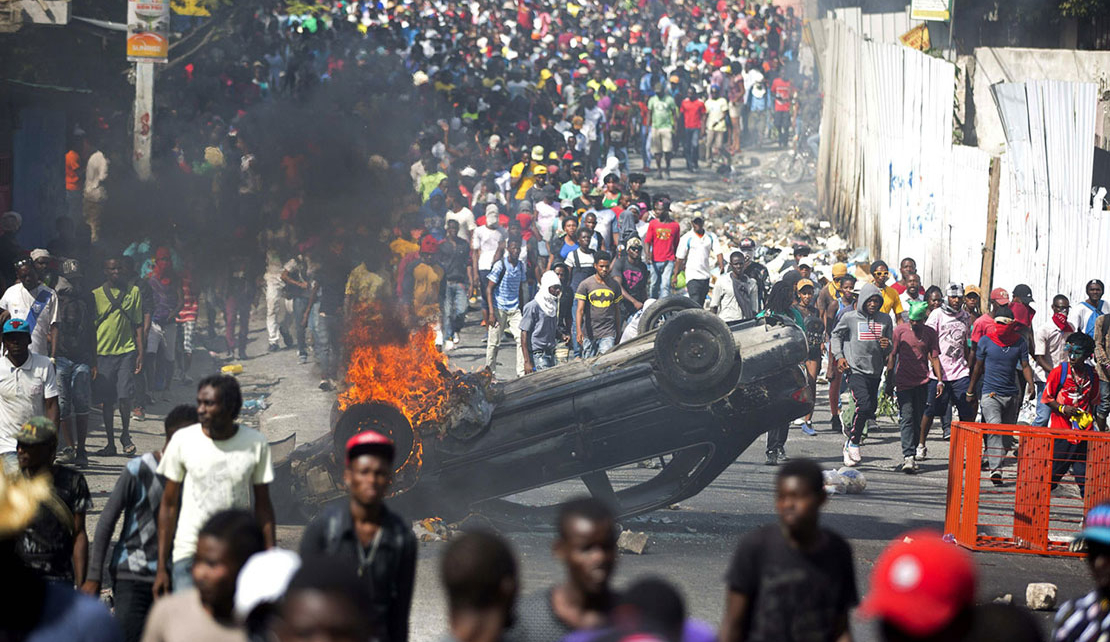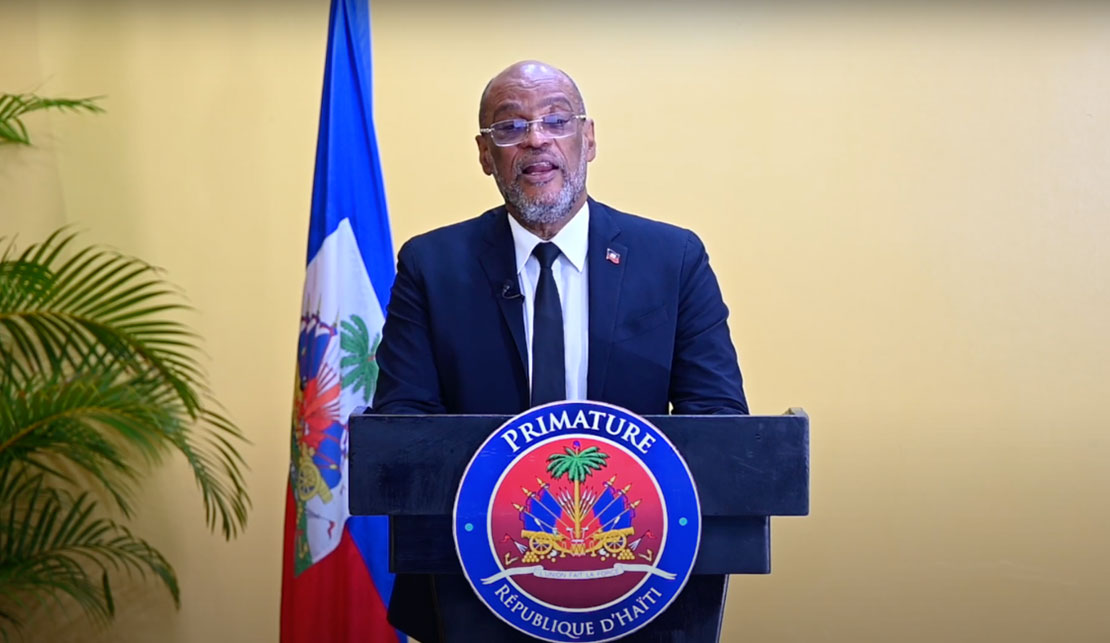HAITI | Stay out of Haiti protestors tell US, Canadian Governments

MONTEGO BAY, Jamaica October 24, 2022 - On October 7, Haitian Prime Minister Ariel Henry called on the international community for help in fighting gang violence which had, among other things, resulted in the complete cessation of fuel distribution in several parts of the country forcing the closure of hospitals and schools and the shutting down of water pumps prohibiting the provision of clean water.
At the same time however, thousands of Haitians are standing against their government and telling the United States and the Canadians to stay out of their country. The fact is that Haiti has rarely, if ever, been allowed to manage its own affairs.
“You are monsters and don’t have the solutions….the demonstrators cry as they protest against the Americans coming back to Haiti as peacekeepers. ”You are chaos, you are behind the gangsterization of crime”..…..”You are giving arms to our brothers and those in underprivileged neighborhoods...” they lament.
Haitians have been protesting for months against inflation, fuel high fuel prices and water shortages, but foreign intervention causes disaster.
As has been said, Haiti was born of the determination of enslaved people to cast off the genocidal yoke of the French. But the Haitian people have paid for this over several hundred years by way of numerous invasions and intrusions. This included a 19-year occupation by the US, from 1915 to 1934.
The US occupation justified itself as being for Haiti’s own good. Its legacies included enriching American elites and laying groundwork for the rise of the dreaded Duvalier dictatorship replete with its signature “Tonton Macoute” enforcers.
The conglomerate of gangs has blocked the country’s main fuel terminal bringing almost everything to a standstill including the temporary shutdown of a big water bottling plant as well as crippling the island’s hospitals.
The prices of basic commodities, like rice, have increased tremendously. While the ministry of health has announced the reemergence of cholera.
According to writer and Human Rights Lawyer Pooja Bhatia, “headlines have reported that Haiti has requested intervention. This is inaccurate. It’s Haiti’s premier, Ariel Henry, who has requested it. Henry more or less appointed himself prime minister following last July’s assassination of President Jovenel Moïse.
“He has never had any sort of constitutional authority and indeed, is implicated in Moïse’s assassination. The people he claims to speak for revile him. His only constituency is outside the country. Over the past 15 months, the US has insisted that the opposition, a remarkably broad-based coalition of civil society leaders, activists and popular organizations, negotiate with him,” Bhatia said in a British Guardian piece on Haiti, entitled “US-backed foreign intervention has led to the disaster in Haiti”.

“In 2010, Minustah recklessly dumped cholera-infected waste into the tributary of a main river, causing the deaths of more than 10,000 people. And when Minustah finally wound down, in 2017, it left behind hundreds of “pitit Minustah” – children fathered by soldiers who took no responsibility for them. Minustah troops were also renowned for bartering sex with teenagers for food, and for outright rape,” Bhatia said.
The Guardian article pointed out that “In Haiti, foreign intervention and humanitarian disaster have become so intertwined that it is hard to tell one from the other. They are locked in a vicious cycle. Cholera is a glaring example. Although the UN apologized, it has never repaired its harms, despite numerous class action lawsuits. (These were dismissed in the US on grounds of the UN’s immunity.) The UN launched a $400m trust fund to help cholera victims and improve sanitation infrastructure, as a kind of voluntary reparation, but raised only a pittance of it.”
The article went on to indicate that over the past decade, the concept of intervention has been used to prop up leaders who do not represent the will of the Haitian people. “In 2010, the head of the UN mission in Haiti threatened President René Preval with forced exile unless he accepted the contested results of a first-round election. That election resulted in the presidency of Michel Martelly, whose administration was found to have misappropriated or mismanaged billions of dollars in aid from the PetroCaribe program.”
The article by Human Rights Lawyer Pooja Bhatia Can be read HERE.
